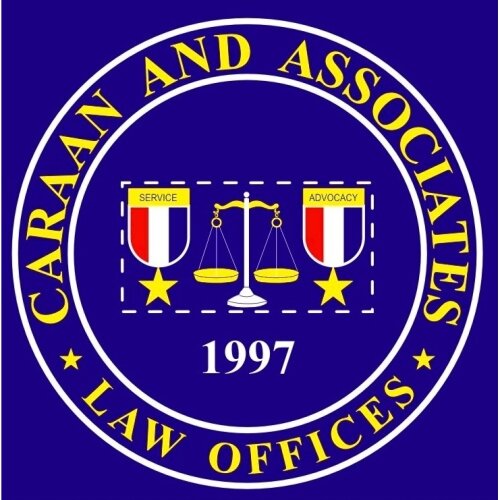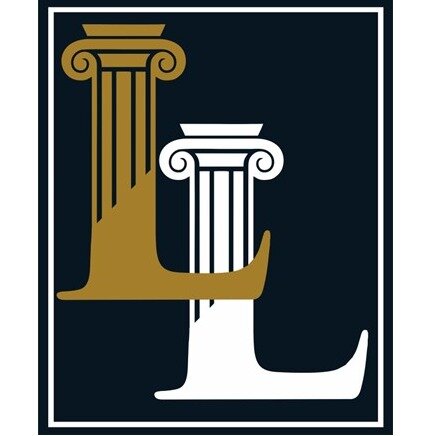Best New Business Formation Lawyers in Manila
Share your needs with us, get contacted by law firms.
Free. Takes 2 min.
List of the best lawyers in Manila, Philippines
About New Business Formation Law in Manila, Philippines:
New Business Formation in Manila, Philippines involves the legal procedures and requirements necessary to establish a new business in the city. This includes registering the business with the appropriate government agencies, obtaining permits and licenses, and complying with local laws and regulations. The process can be complex, and it is crucial to understand the legal aspects involved to ensure a smooth and successful business formation.
Why You May Need a Lawyer:
Seeking legal assistance in New Business Formation is important to navigate the intricacies of the legal system and ensure compliance with all the necessary requirements. Hiring a lawyer can be beneficial in various situations, including:
- Formulating a solid business structure, such as choosing the right legal entity (sole proprietorship, partnership, corporation, etc.)
- Preparing and reviewing legal documents, such as contracts and agreements
- Understanding taxation laws and requirements for businesses
- Securing necessary permits and licenses
- Resolving legal disputes that may arise during or after business formation
Local Laws Overview:
In Manila, Philippines, several key aspects of local laws are particularly relevant to New Business Formation. Here are some important factors to consider:
- Business Name Registration: All businesses must register their name with the Department of Trade and Industry (DTI) or the Securities and Exchange Commission (SEC) for corporations.
- Business Permits and Licenses: Various permits and licenses, such as Mayor's/Business Permit, Barangay Clearance, and Tax Identification Number (TIN), are required to legally operate a business.
- Taxation: Businesses are subject to local and national taxes, including income tax, value-added tax (VAT), and business taxes. Compliance with tax laws is essential.
- Labor Laws: Businesses must adhere to labor laws, such as minimum wage requirements, employee benefits, and workplace safety standards.
- Intellectual Property Rights: Protecting intellectual property, such as trademarks or copyrights, is crucial to safeguard business interests.
Frequently Asked Questions:
1. Do I need to register my business with the SEC?
If you plan to operate your business as a corporation or partnership, registration with the Securities and Exchange Commission (SEC) is mandatory. However, if you choose a sole proprietorship, registration with the Department of Trade and Industry (DTI) is required.
2. How long does it take to register a business in Manila?
The duration of business registration varies depending on the type and complexity of your business. Generally, it can take around 2-4 weeks to complete the registration process.
3. What taxes do I need to pay as a new business owner?
As a business owner in Manila, you may be subject to various taxes, including income tax, value-added tax (VAT), and local business taxes. It is essential to understand and comply with the tax obligations specific to your business.
4. Can I operate my business from home?
In some cases, you can operate a small-scale business from your residence, subject to certain rules and regulations. It is advisable to check with the local barangay office for any restrictions or permits required.
5. What is the difference between a sole proprietorship and a corporation?
A sole proprietorship is a business owned and operated by a single individual, while a corporation is a separate legal entity owned by shareholders. The main distinction lies in liability: in a sole proprietorship, the owner is personally liable for the business's debts, whereas a corporation offers limited liability protection to its shareholders.
Additional Resources:
For further information and assistance related to New Business Formation in Manila, Philippines, consider utilizing the following resources:
- Department of Trade and Industry (DTI): https://www.dti.gov.ph
- Securities and Exchange Commission (SEC): https://www.sec.gov.ph
- Philippine Statistics Authority (PSA): https://www.psa.gov.ph
Next Steps:
If you require legal assistance for New Business Formation in Manila, Philippines, consider the following steps:
- Gather relevant information about your business, including the proposed structure, required permits, and any existing contracts.
- Research reputable law firms or lawyers experienced in business formation in Manila.
- Schedule a consultation with a lawyer to discuss your specific needs and receive guidance on the legal processes.
- Collaborate with your chosen lawyer to complete the necessary paperwork, fulfill legal requirements, and ensure compliance with local laws.
- Maintain communication with your lawyer throughout the business formation process to address any legal issues that may arise.
Lawzana helps you find the best lawyers and law firms in Manila through a curated and pre-screened list of qualified legal professionals. Our platform offers rankings and detailed profiles of attorneys and law firms, allowing you to compare based on practice areas, including New Business Formation, experience, and client feedback.
Each profile includes a description of the firm's areas of practice, client reviews, team members and partners, year of establishment, spoken languages, office locations, contact information, social media presence, and any published articles or resources. Most firms on our platform speak English and are experienced in both local and international legal matters.
Get a quote from top-rated law firms in Manila, Philippines — quickly, securely, and without unnecessary hassle.
Disclaimer:
The information provided on this page is for general informational purposes only and does not constitute legal advice. While we strive to ensure the accuracy and relevance of the content, legal information may change over time, and interpretations of the law can vary. You should always consult with a qualified legal professional for advice specific to your situation.
We disclaim all liability for actions taken or not taken based on the content of this page. If you believe any information is incorrect or outdated, please contact us, and we will review and update it where appropriate.

















